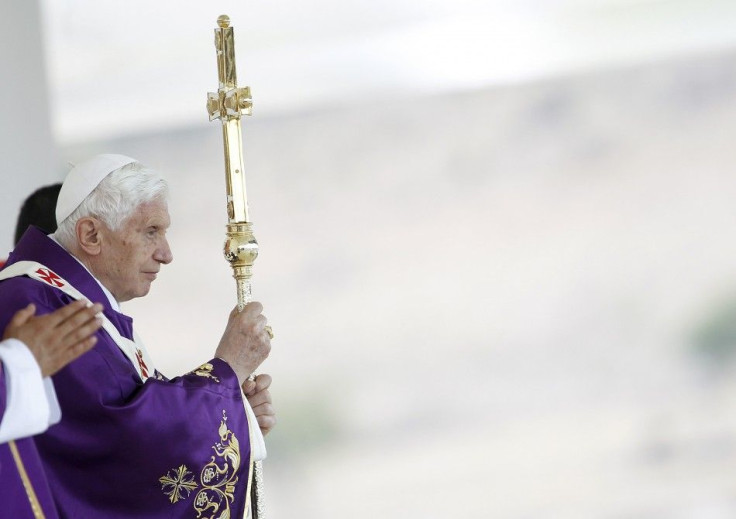Pope Benedict Travels To Communist Cuba

Pope Benedict XVI arrives in Cuba on Monday. The three-day trip marks the second time that the head of the Catholic Church has visited the island nation since the Communist Revolution of 1959.
Benedict arrives in the city of Santiago by way of Mexico, where he warned against the evils of the drug trafficking and violence that have plagued the country for the past five years. After leading an open air mass in Santiago on Monday and visiting the city's Our Lady of Charity cathedral a day later, the pope will travel to Havana to meet with Cuban President Raul Castro.
Longtime Cuban leader Fidel Castro is also expected to meet with the pope, although his deteriorating health may hinder the visit. Fidel Castro famously met with Pope John Paul II in 1998.
Venezuelan President Hugo Chavez will also be in Cuba when Benedict visits. Chavez arrived in Havana on Saturday for radiation therapy, but a Vatican spokesperson said that there is no planned meeting between the pope and the Venezuelan leader.
Many Cuban-Americans in south Florida are making the reverse-trip that their families did during the revolution, traveling back to Cuba as a pilgrimage to see the pontiff. Some of them are conflicted by the idea of going back to a country they once fled, according to the Associated Press, and Benedict's comments about the country are sure to add to that confusion.
It is evident that Marxist ideology, as it was conceived, no longer responds to reality, the pope said prior to his visit, adding that the country should with patience and in a constructive fashion find new models of government.
The church has become an increasingly strong presence in Cuba in recent years. Religion was restricted in the initial years of the Communist state, but the Catholic Church now runs social programs and has been involved with freeing political prisoners, according to the AP.
Additionally, the Cuban government took Benedict XVI's criticisms in stride.
''We consider the exchange of ideas to be useful,'' said Foreign Minister Bruno Rodriguez Parrilla. ''Our people have deep convictions developed over the course of our history.''
© Copyright IBTimes 2025. All rights reserved.





















